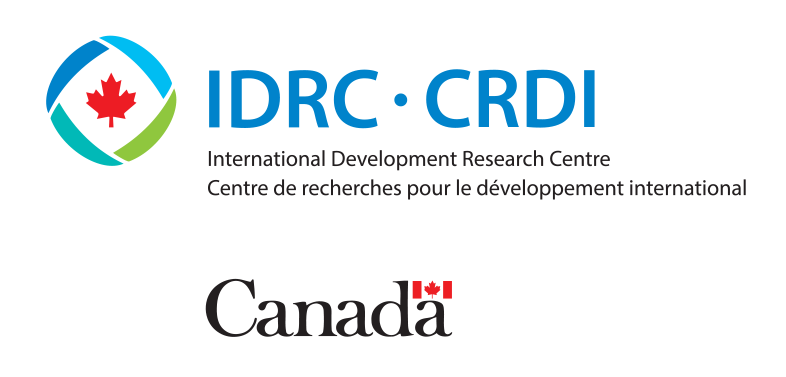About IDRC
A Crown corporation, we support leading thinkers who advance knowledge and solve practical development problems. We provide the resources, advice, and training they need to implement and share their solutions with those who need them most. In short, IDRC increases opportunities—and makes a real difference in people’s lives.
Working with our development partners, we multiply the impact of our investment and bring innovations to more people in more countries around the world. We offer fellowships and awards to nurture a new generation of development leaders.
What we do
IDRC funds research in developing countries to create lasting change on a large scale.
To make knowledge a tool for addressing pressing challenges, we
- provide developing-country researchers financial resources, advice, and training to help them find solutions to local problems.
- encourage knowledge sharing with policymakers, researchers, and communities around the world.
- foster new talent by offering fellowships and awards.
- strive to get new knowledge into the hands of those who can use it.
In doing so, we contribute to Canada’s foreign policy, complementing the work of Global Affairs Canada, and other government departments and agencies.
Resources
Displaying 21 - 25 of 324Using transformative scenario planning as a way to think differently about the future of land use in Bobirwa, Botswana
Land use involves a diverse range of perspectives and cannot be resolved by any single stakeholder working alone. A process like Transformative Scenario Planning (TSP) can bring together conflicting opinions and help people to start thinking differently. This report summarises the main steps, processes and ideas involved in the TSP workshops in Botswana. It articulates the process of TSP, how it unfolds in a group setting and how it can be used to draw out questions and concerns.
Vulnerability and Adaptation to Climate Change in Semi-Arid Areas in India
This detailed report summarises key findings from an extensive Regional Diagnostic Study (RDS) for South Asia. Despite intense analytical efforts at the sub-regional level, reliable downscaled data may not be available with current models. As well, the spatial scale of available downscaled climate products (Regional Climate Models) may preclude their use in local decision-making. Often, locally significant drivers such as land use-land cover change overwhelm the influence of climatic drivers.
Policy brief comparing state and traditional land justice systems in Uganda
This policy brief presents strengths and weaknesses of state and traditional land justice institutions in relation to access, costs and speed in concluding the process of resolving land cases. In the current legal and institutional framework, strengthening of the customary justice system would bring benefits. With 93% of land in the Northern and Eastern regions under customary tenure, the most important institution is the clan, yet clan rulings are most often ignored by a parallel state system.
Why wait for the state? : using the CFS Tenure Guidelines to recalibrate the political-legal terrain in struggles for human rights and democratic control of land, fisheries and forests
Grassroots organizations do not need to wait for the state to implement Voluntary Guidelines on the Responsible Governance of Tenure of Land, Fisheries and Forests in the Context of National Food Security (Tenure Guidelines or TGs). Rural communities can take governance into their own hands and use TGs as a tool for investigation, reflection and action. The challenge is how to take the next step: under what conditions can TGs provide the rural poor with resources to organize and mobilize?
Large-scale land acquisition and its implications for women’s land rights in Cameroon
The study illustrates that small holders, particularly women, are increasingly losing farmland. It questions the social development impact of large-scale land acquisitions (LSLAs) in Cameroon in terms of better living standards and reduction of poverty. It also examines how and under what conditions women can be empowered to effectively engage with LSLAs to ensure that legal and policy frameworks foster better accountability and legitimacy in land governance. Most untitled land in Cameroon is now national land held under customary tenancy, without security.







